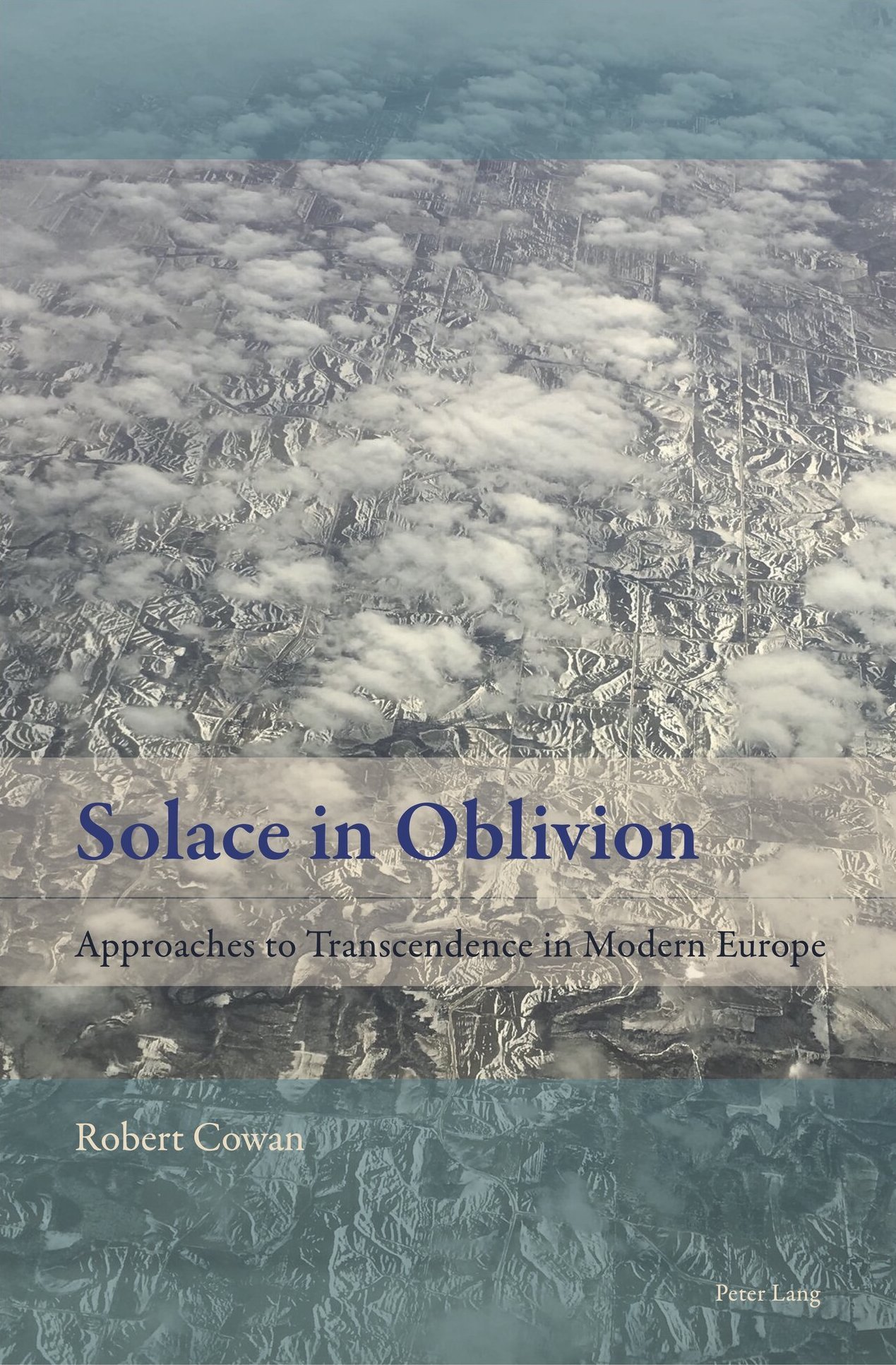Solace in Oblivion: Approaches to Transcendence in Modern Europe
| Peter Lang Oxford, New Comparative Criticism, 2020
We live in an era of global anxiety – about rising nationalism, civil and human rights struggles, the ramifications of declining white male hegemony, about driving ourselves and other species toward extinction. We see this anxiety everywhere. It manifests in our “elites,” in our electorate, in our children. So it’s no surprise that we also see people seeking transcendence of their material circumstances, as emblematized by the opioid crisis, endless mass shootings, the dramatic rise in elder suicide, the many migration crises. But exploring the possibilities of transcendence of our materiality, through religion, philosophy, psychology, and in literature, is not a new feature of thought, art, or action.
This book explores approaches to the immanence-transcendence problem in works of French, German, Italian, and Russian literature and philosophy between 1762 and 2016, in an effort to understand how different thinkers have approached this dynamic. These authors don’t necessarily advocate for these approaches, but they observe them in their own milieus and thus document, explore, assay. This book is divided into four “suppression” approaches and four “infliction” approaches, sometimes combining sympathetic source material from different centuries and countries that take complementary stances. The advantage of this method is that it looks beyond neat chronological or topographical groupings so that we might develop conceptual syntheses that help us understand how we can confront our 21st-century problems. While this book takes a skeptical approach as to whether a person can experience sensory comprehension of transcendence of his or her embodiment, we are clearly in need of literature that provides guidance for our current sociological and psychological circumstances. Solace in Oblivion presents past and present approaches to transcendence in modern Europe in an effort to help us navigate our global future.
“In his captivating exploration of the tension between immanence and transcendence in modern and contemporary European literature, philosophy, and critical theory, Robert Cowan takes us on a compelling quest for responses to an enduring and multifaceted human aspiration – to trespass the limits of the material world and access the divine.”
– Nicoletta Pireddu, Professor of Italian & Comparative Literature, Georgetown University
“In this important, wide-ranging literary and theoretical exploration of the drive for transcendence, Robert Cowan presents a comparative critique of global neo-Gnosticism. Grounded in varied, specific examples and a first-person point of view, Cowan compellingly shows how far the planet is from achieved secularization. Whatever we consider the secular or ‘worldly’ to be, the more it seems to dominate, the more the otherworldly may manifest itself in the temptations of oblivion.”
– Kirk Wetters, Professor & Chair of German, Yale University
“Comp Lit at its best. “Ambitious, imaginative, & unafraid of treading new paths.”
- Florian Mussgung, University College London
